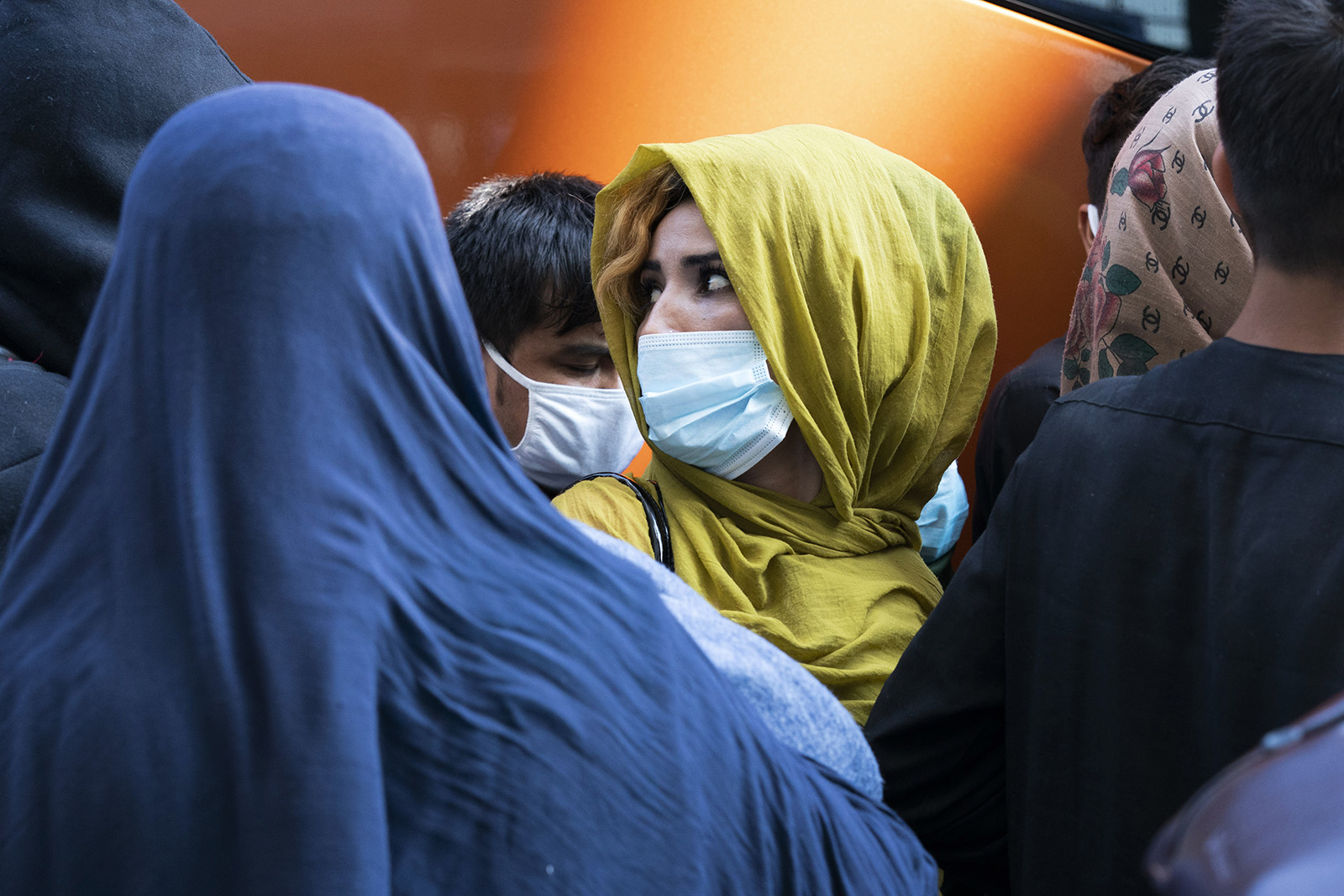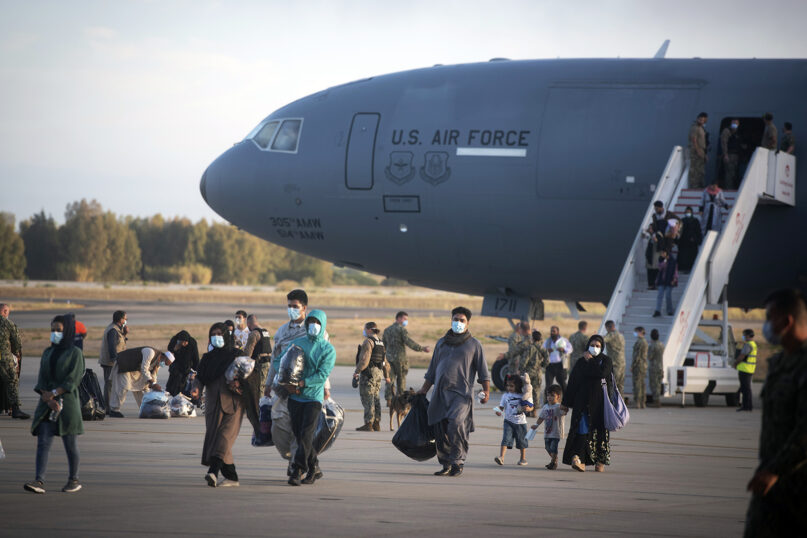(RNS) — Ali was born in Afghanistan. And over the years, he’s seen a lot. He’s seen insurgents overtake villages. He’s seen neighbors care for one another in the face of grave danger. And now, he sees it all from a distance after arriving in the U.S. in July and resettling to Pennsylvania, where he prays for his mother and brother who remain in an Afghanistan once again ruled by the Taliban.
Like so many others, Ali has given much to the United States, serving as a combat linguist and as a media analyst for the U.S. Embassy in Kabul. He’s sacrificed, and now he is building a new life in the U.S. after being resettled with help from Bethany Christian Services.
Like thousands of other Afghans who have stared death in the face, Ali longs for peace, security and a chance to flourish. The United States promised these things to our Afghan allies. Now, as that promise is broken for countless Afghans, Christians must respond by following the example Jesus sets in the Bible.
RELATED: Don’t confuse military action with the mission of God
I have worked in disaster response my entire career. In Afghanistan, I was a humanitarian worker under Taliban rule. I saw what happened after the Taliban fell in 2001, and the Afghan people tasted freedom for the first time. I know the danger they are in now that the Taliban has returned to power.
Today, our Afghan friends need the United States government to keep its word. Their lives depend on it. And Christians need to be on the front lines praying, advocating and helping.
For followers of Jesus, our concern for the vulnerable ought to have no limits. We help the forgotten, overlooked and ignored. Our faith compels us to not just love our neighbors, but to love our neighbors as ourselves. We are meant to enter the hard places with the humility, confidence and calling that comes from being followers of Christ.
As we watch tragic scenes play out in Afghanistan, some American Christians don’t want to help. I don’t know all the reasons why, but I do know that when we focus only on ourselves, we neglect our biblical call to welcome the stranger and care for those who are hurting.
Far too often we find ourselves sitting around tables of our own making, talking in circles while the world burns. We debate what is right and wrong politically and theologically. The bottom line in God’s kingdom is this: Are we truly loving our neighbor as ourselves?

People evacuated from Kabul, Afghanistan, wait to board a bus after they arrived at Washington Dulles International Airport, in Chantilly, Virginia, on Aug. 25, 2021. (AP Photo/Jose Luis Magana)
Here’s what this looks like:
First, by naming what is wrong.
In recent weeks, the United States has abandoned our allies and even some of our citizens. Withdrawal of troops, allies and the vulnerable was chaotic at best and devastating at worst. It grieves me that many of our allies will be surrendered to the Taliban despite our government’s promise to never leave them behind. The U.S. government should prioritize the protection of our Afghan allies, just as it prioritized the withdrawal of U.S. forces, and resume the evacuation.
Second, by mourning all that’s wrong.
As it is, Afghan refugees and allies are left stranded. I lament that Afghans — especially women and girls — will lose their rights, and that Christians and other religious minorities will face intense persecution with the return of Taliban rule. Before we move to help, we must weep with them.
Third, by offering tangible support.
We may think, in cases of global crises such as Afghanistan, that we are powerless. Far from it. While many have been left behind, thousands of Afghan allies and refugees will be resettled in the U.S. We should welcome them into our communities.
This kind of welcome can take many forms — helping a resettled family find housing, driving resettled refugees to work until they get their license, stocking their new home with essentials.
Bethany has resettled tens of thousands of refugees since 1975, when the U.S. withdrew from Vietnam, beginning with Operation Babylift. More than 250 Afghan allies and refugees have resettled in the U.S. through Bethany, including 65 children who came to the U.S. alone after losing their parents during the conflict.
The key to helping these people thrive in their new homes wasn’t connections to people of power or privilege but interfaith community and friendship offered by everyday Christian Americans. When the church steps up to help those in need, the good news of Jesus spreads once again.
Finally, by working together.
Our Afghan allies risked life and livelihood to work toward collective freedom and peace. For them, this is just as important as their own individual security. Today, unfortunately, some of these partners are facing execution as a result.
RELATED: How to help Afghans arriving in the US after fleeing the Taliban
Loving our neighbor isn’t good enough right now — loving our neighbor as ourselves is what’s required of faithful followers of Jesus. When Christians do this, lives are not only forever changed, but God’s kingdom comes, and His will is done on earth like it is heaven.
There’s no better way to reflect the light of Jesus to those in need through our actions. I pray that God uses our simple gestures of kindness to grow a global movement of compassion.
When we commit to being the hands and feet of Christ, mountains can be moved.
(Chris Palusky is president and CEO of Bethany Christian Services. The views expressed in this commentary do not necessarily reflect those of Religion News Service.)





